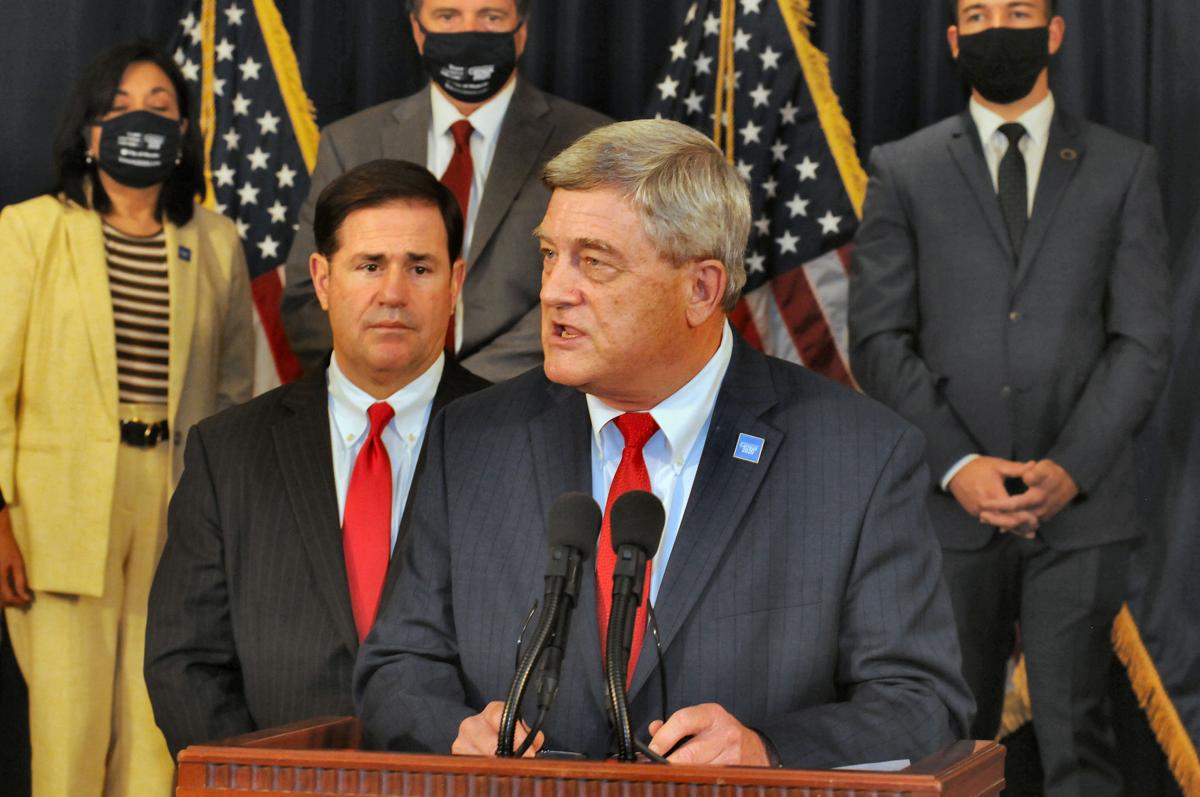PHOENIX — The nation’s top Census Bureau official came to Arizona in a last-minute push to get people to respond to the decennial count.
But time is running out. And Arizona is lagging.
The top official, Steven Dillingham, said Thursday the overall response rate in Arizona is 88.9%. That includes 62.9% who responded on their own and another 26.1% through follow-up work done by census employees.
Dillingham said he believes Arizona will be at 90% by the end of the week, aided at least in part by more than 400 new census workers specifically brought to the state to track down those who have yet to respond.
Still, that percentage falls behind most of the rest of the country. Dillingham figures the national rate by that point will be at 95%.
“And some, in past days, have reached the 99% mark,” he said, including Idaho and West Virginia. “And Hawaii is knocking on the door.”
But this isn’t a simple matter of bragging rights.
Arizona Gov. Doug Ducey has estimated that each percentage point undercount translates into the loss of about $62 million a year in federal aid. So if Arizona can’t get its final count above 90%, that would mean $620 million less each year.
Multiply that by a decade — the official count is done only once every 10 years — and the figure balloons to $6.2 billion.
That doesn’t even address how an undercount here compared with the rest of the nation might affect the number of congressional seats Arizona gets through 2030.
The state is working against the clock.
President Trump, reversing an earlier decision, has ordered the first set of numbers to be produced by Sept. 30.
That could change. A federal judge already has ordered the Census Bureau not to start wrapping up operations until the judge gets to consider a lawsuit seeking another month.
Ducey, for his part, declined to put his support behind providing more time for the county. “This is a federal deadline,” he said. “There aren’t exceptions for states.”
Dillingham said, “Right now we’re preparing to complete the count by the end of this month. And we’re on track to do so.”
He said he believes the reason Arizona is lagging is related to the COVID-19 pandemic, even though the virus isn’t specifically an Arizona problem.
“The pandemic has hit all states in different ways,” he said. In Arizona, he said the “self-response” speed has been affected — specifically, how quickly residents on their own sent back the census forms they got, responded by computer or called the toll-free number.
Some of the missing response is designed to be filled with the door-to-door checks being made by Census Bureau workers of residences where no one has answered so far. But Dillingham said that’s not the ultimate solution.
“We’re encouraging self responses today,” he said.





